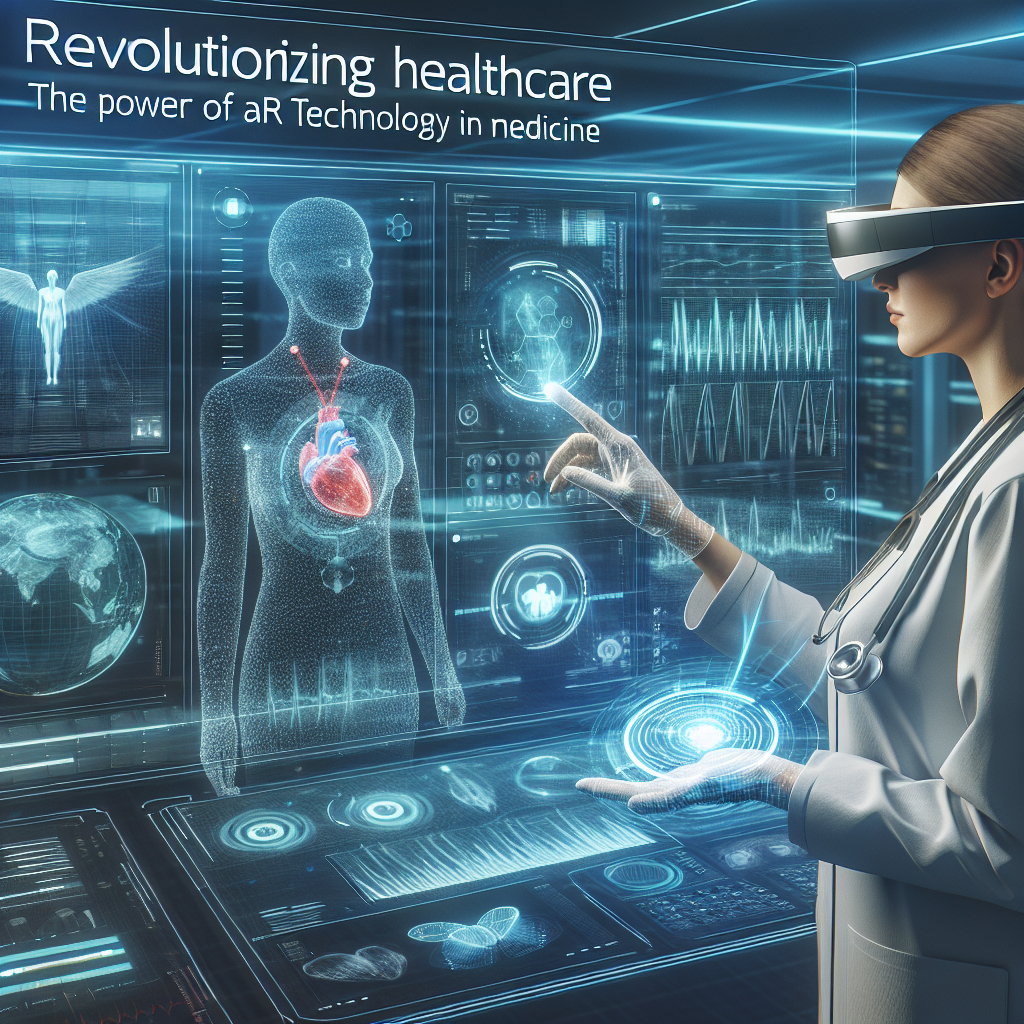Revolutionizing Healthcare: The Power of AR Technology in Medicine
In recent years, the healthcare industry has seen a significant transformation with the integration of technology into medical practices. One of the most groundbreaking advancements in healthcare technology is the use of augmented reality (AR) technology in medicine. AR technology is revolutionizing the way healthcare professionals diagnose, treat, and interact with patients, providing new opportunities for personalized healthcare and improved patient outcomes.
What is AR technology?
Augmented reality is a technology that overlays digital information onto the real world through the use of devices like smartphones, tablets, and smart glasses. Unlike virtual reality, which creates a completely immersive digital environment, AR enhances the real world by adding digital elements to it. In healthcare, AR technology is being used to visualize medical data, provide real-time feedback during surgeries, and improve patient education and engagement.
How is AR technology revolutionizing healthcare?
AR technology is revolutionizing healthcare in a number of ways, including:
1. Surgical assistance: Surgeons can use AR technology to overlay digital images and data onto a patient’s body during surgery, providing real-time guidance and feedback. This helps improve surgical precision, reduce the risk of complications, and enhance patient outcomes.
2. Medical imaging: AR technology is being used to visualize medical images like X-rays, CT scans, and MRIs in 3D space, allowing healthcare professionals to identify and treat medical conditions more accurately. This can lead to faster and more effective treatment options for patients.
3. Patient education: AR technology is providing new ways for healthcare professionals to educate and engage with patients. For example, patients can use AR-enabled apps to visualize their anatomy, understand medical procedures, and adhere to treatment plans. This improves patient outcomes and increases patient satisfaction.
4. Rehabilitation: AR technology is being used in rehabilitation therapy to enhance the recovery process for patients with physical or cognitive impairments. By providing interactive exercises and real-time feedback, AR technology can help patients regain mobility, improve motor function, and enhance their quality of life.
5. Remote consultations: AR technology is making healthcare more accessible and convenient for patients by enabling remote consultations with healthcare professionals. Patients can use AR-enabled devices to connect with doctors, receive medical advice, and monitor their health from the comfort of their own homes.
What are the benefits of AR technology in healthcare?
The benefits of AR technology in healthcare are numerous, including:
1. Enhanced visualization: AR technology provides healthcare professionals with enhanced visualization of medical data, allowing them to identify and treat medical conditions more accurately.
2. Improved surgical precision: AR technology helps surgeons perform procedures with greater precision, reducing the risk of complications and improving patient outcomes.
3. Patient engagement: AR technology enhances patient engagement by providing interactive and personalized healthcare experiences, leading to improved patient satisfaction and adherence to treatment plans.
4. Accessibility: AR technology makes healthcare more accessible and convenient for patients by enabling remote consultations and self-monitoring of health conditions.
5. Cost-effectiveness: AR technology can help reduce healthcare costs by improving efficiency, reducing the need for in-person consultations, and preventing unnecessary medical procedures.
FAQs:
Q: Is AR technology safe to use in healthcare?
A: Yes, AR technology is safe to use in healthcare when used appropriately and ethically. Healthcare professionals are trained to use AR technology safely and effectively to improve patient outcomes.
Q: How can patients benefit from AR technology in healthcare?
A: Patients can benefit from AR technology in healthcare by receiving personalized treatment, improved patient education, and enhanced engagement with healthcare professionals.
Q: Are there any limitations to using AR technology in healthcare?
A: While AR technology offers many benefits in healthcare, there are limitations to its use, including the cost of implementation, the need for specialized training, and concerns about privacy and data security.
In conclusion, AR technology is revolutionizing healthcare by enhancing visualization, improving surgical precision, engaging patients, increasing accessibility, and reducing healthcare costs. As technology continues to advance, the integration of AR technology in medicine will play a crucial role in transforming the healthcare industry and improving patient outcomes.
